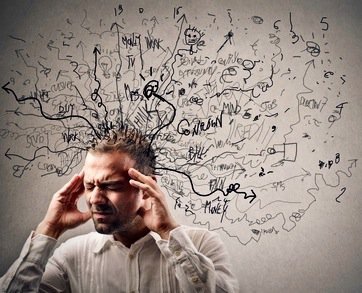Anxiety: Why Is It So Difficult to Overcome?

These days, anxiety attacks are very common, and most often we have no idea how to deal with or alleviate them. They appear, they take over…but how can we get rid of them?
Many psychologists have studied anxiety attacks, and have come to the conclusion that there is no “minimum” or “maximum” age in which one starts or stops suffering from them. This tells us that from the moment we are born to the moment we die, we are vulnerable to experiencing anxiety. Nevertheless, certain people are more susceptible than others, and certain stages of life may “boost” our vulnerability.
Anxiety is a physical reaction to a stimulus, usually having to do with a desire for something to change, improve, or happen, etc. Anxiety attacks stem from feelings of vulnerability, either physical or psychological.
When we perceive a situation as threatening or out of our comfort zone, we feel anxiety. It is the same when the future is uncertain: when we wait longingly for someone to arrive, for a race to finish, for a baby to be born, or for our wedding day to finally come, etc.
Fear of being afraid
How can this phrase be understood? According to researchers, 23% of people have suffered, currently suffer, or will suffer from an anxiety attack. This does not mean they have a psychological disorder; nor does it mean that the symptoms will last a long time.
Anxiety is like fear, squared, meaning that the same process of fear can be repeated over and over again. We fear that we won’t graduate, worry that the person we’re waiting for won’t show up, feel concerned about the birth of a child, dread that it will rain on our wedding day, etc.

The feeling of anxiety is similar to being locked in a cage or trapped in maze with no exit. We know that at some point we will figure our how to get out, but we have no idea when that will happen. That uncertainty causes us to feel even more fear and anxiety, creating a vicious cycle from which we cannot escape.
The next step is the externalization, or physical manifestation, of this fear and anxiety: our stomach hurts, we get heartburn, we feel faint, we cannot breathe, we sweat excessively, our skin becomes greasier, our pupils dilate, our heartbeat races, and we may even experience problems in our liver. All of these symptoms can appear when we feel anxious, and further demonstrate the link between the physical and psychological.
“I am about to go crazy.” “I can’t breathe.” “I can’t think clearly.” “I think I’m going to pass out.” These aren’t necessarily the thoughts of someone experiencing a panic attack, but rather an individual who is feeling anxious and fearful.
Even if we’ve pinpointed the symptoms, it is difficult to escape them. Why is it so hard to relax and stop feeling anxiety? Because fear is a ferocious animal that waits for us, poised to attack, and when it does, it does not let us go.
So, what can we do? Various options exist, but the most important thing to do is to learn to live in the present, to not think so much about the future, and to enjoy life as it is right now. This is how you will avoid feeling so anxious.
Another very effective technique is to learn to control your emotions and thoughts. The moment that anxiety and fear begin to emerge, you must confront them. Put on your armor, put up your shield, and defend yourself. How? With positive ideas, by paying attention to what you are doing in that very moment, and not allowing your heart start racing, etc.
It is possible to overcome anxiety and, in turn, fear. It is only a question of understanding why we feel that way and analyzing how we can “tame the beast” that frightens us.
This text is provided for informational purposes only and does not replace consultation with a professional. If in doubt, consult your specialist.








